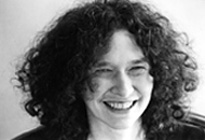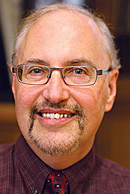Lawrence University Professor of Music Catherine Kautsky explores the ways composers speak through their music in the college’s annual Honors Convocation.

Kautsky presents “Whispered Doubts and Shouted Convictions: What are These Composers Saying?” Thursday, May 29 at 11:10 a.m in the Lawrence Memorial Chapel in the final address of the 2013-14 convocation series. The event is free and open to the public.
The convocation also will be live streamed.
Playing music ranging from John Phillip Sousa’s patriotic “Stars and Stripes Forever” to works filled with question marks, Kautsky will discuss what composers can tell us about their personal convictions, struggles and fallibilities and how they use keys, harmonies and rhythms to convey world views.
The Honors Convocation publicly recognizes students and faculty recipients of awards and prizes for excellence in the arts, humanities, sciences, social sciences, languages and music as well as demonstrated excellence in athletics and service to others. Students elected to honor societies also will be recognized.
An accomplished pianist, Kautsky was chosen to speak as the recipient of Lawrence’s annual Faculty Convocation Award, which honors a faculty member for distinguished professional work. She is the fifth faculty member so honored.
Chair of Lawrence’s keyboard department, Kautsky has performed throughout the United States and abroad as a recitalist, soloist with orchestra and chamber musician, appearing in venues ranging from Carnegie Hall in New York and Boston’s Jordan Hall to the Phillips Collection in Washington, D.C. and the Cultural Center in Chicago.
She has traveled widely, performing frequently in France and England and recently has presented concerts and classes in China, Korea, Brazil and South Africa.
She has soloed with the St. Louis Symphony, Milwaukee Chamber Orchestra and Wisconsin Chamber Orchestra; performed chamber music at the Aspen, Tanglewood and Grand Teton summer music festivals; and appeared frequently on the radio in Chicago, New York, Washington, D.C., St. Louis, Pittsburgh and Madison.
Many of her recent performances have centered around social or literary themes, locating musical masterpieces in their historical moment. She has presented lecture-recitals on the music of the Holocaust, French music and World War I, and Schumann and the writings of ETA Hoffmann. Her repertoire runs the gamut from Bach to Rzewski and Crumb, with a special emphasis on French music and the music of the first Viennese school.
Kautsky, who taught in the Lawrence conservatory of music from 1987-2002 and then returned to the faculty in 2008, holds a bachelor’s degree from the New England Conservatory, a master’s degree from the Juilliard School and a doctoral degree in performance from the State University of New York at Stony Brook.
About Lawrence University
Founded in 1847, Lawrence University uniquely integrates a college of liberal arts and sciences with a nationally recognized conservatory of music, both devoted exclusively to undergraduate education. It was selected for inclusion in the Fiske Guide to Colleges 2014 and the book “Colleges That Change Lives: 40 Schools That Will Change the Way You Think About College.” Individualized learning, the development of multiple interests and community engagement are central to the Lawrence experience. Lawrence draws its 1,500 students from nearly every state and more than 50 countries.

